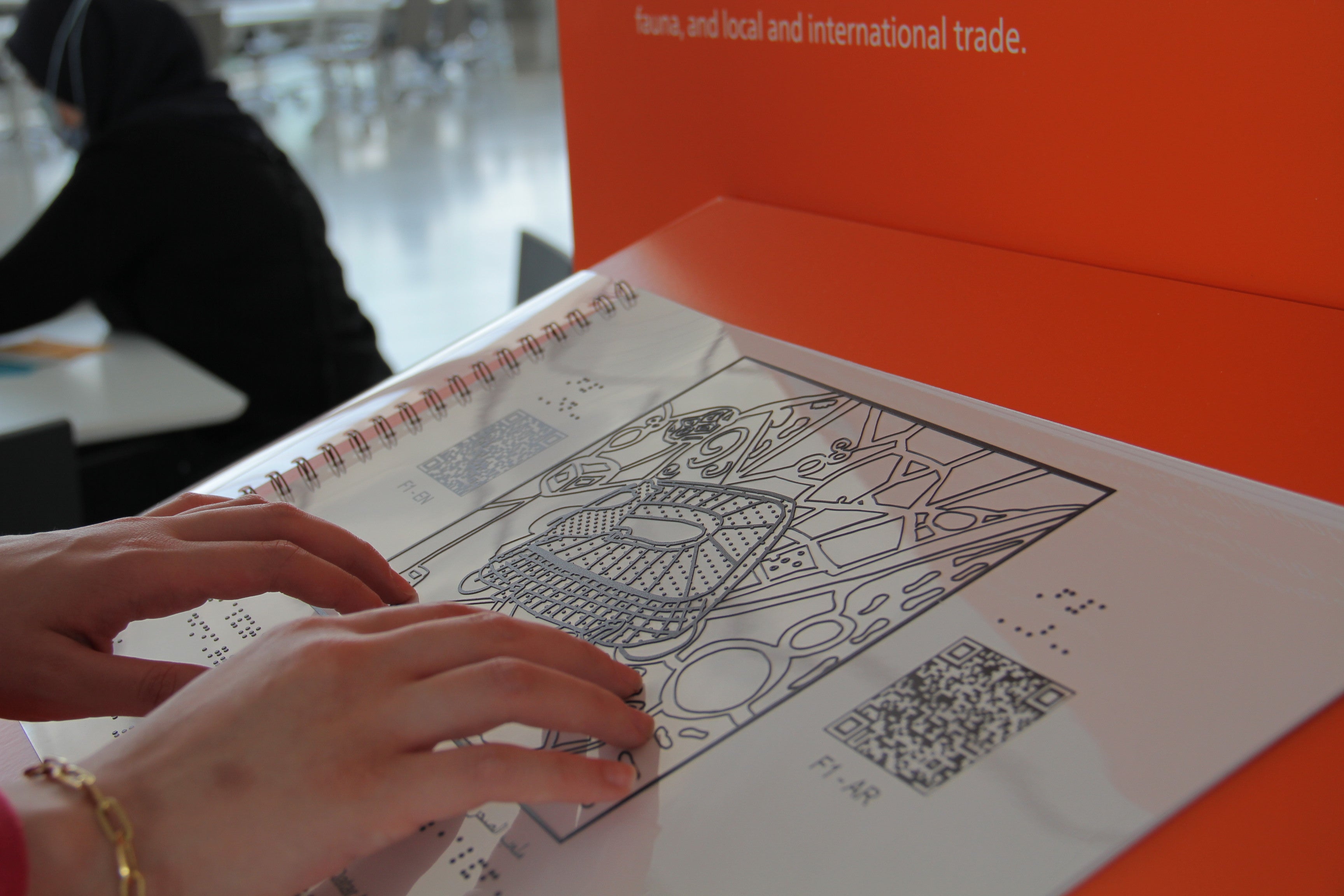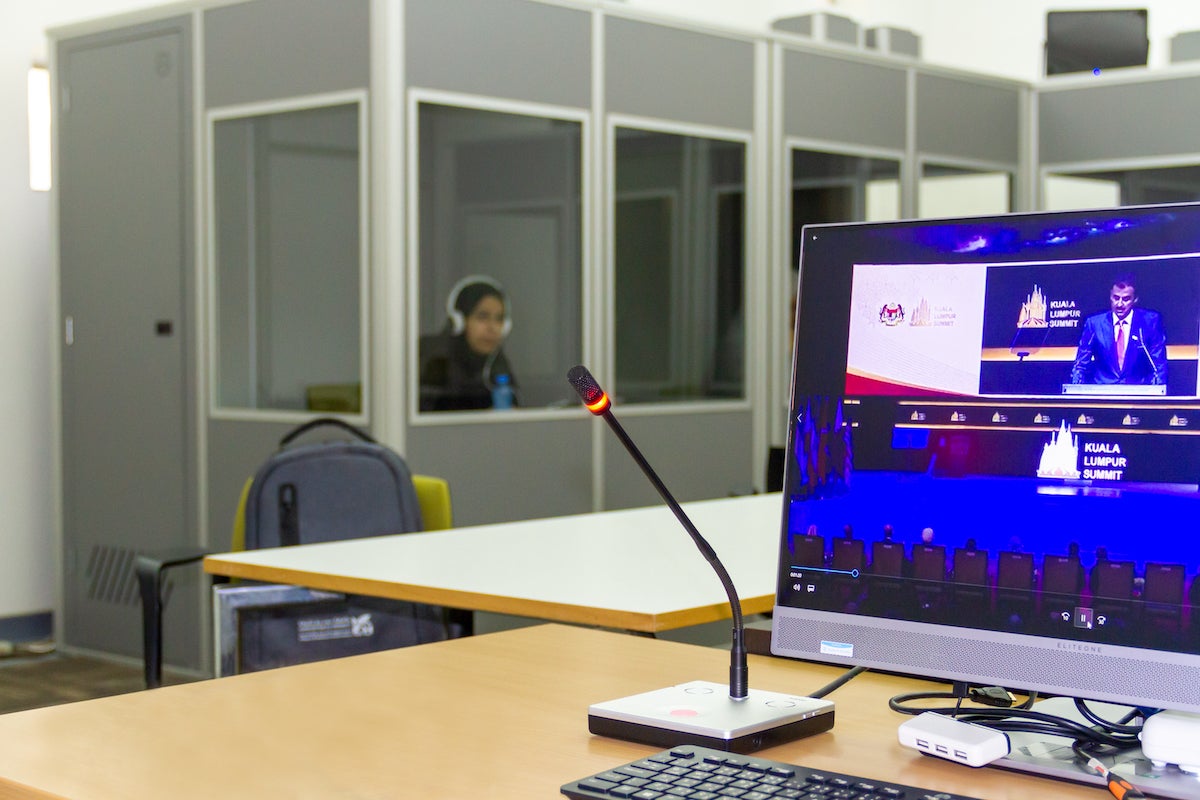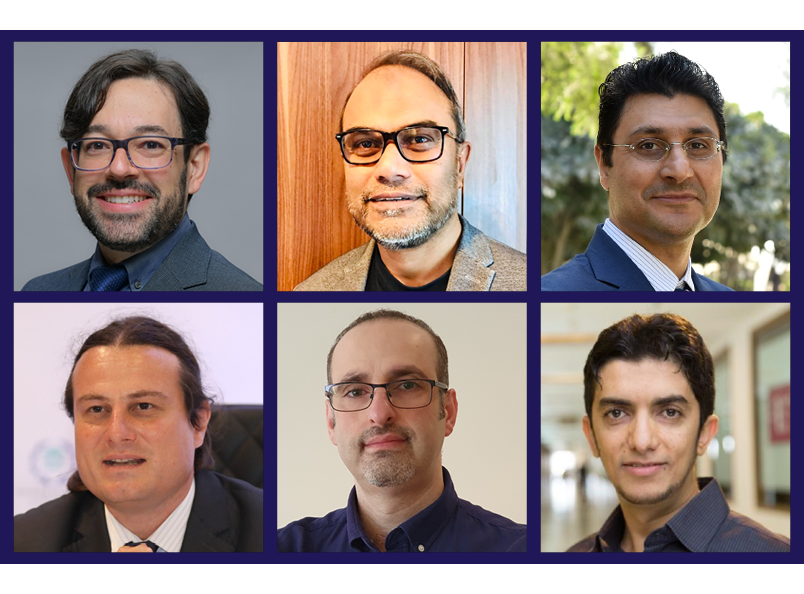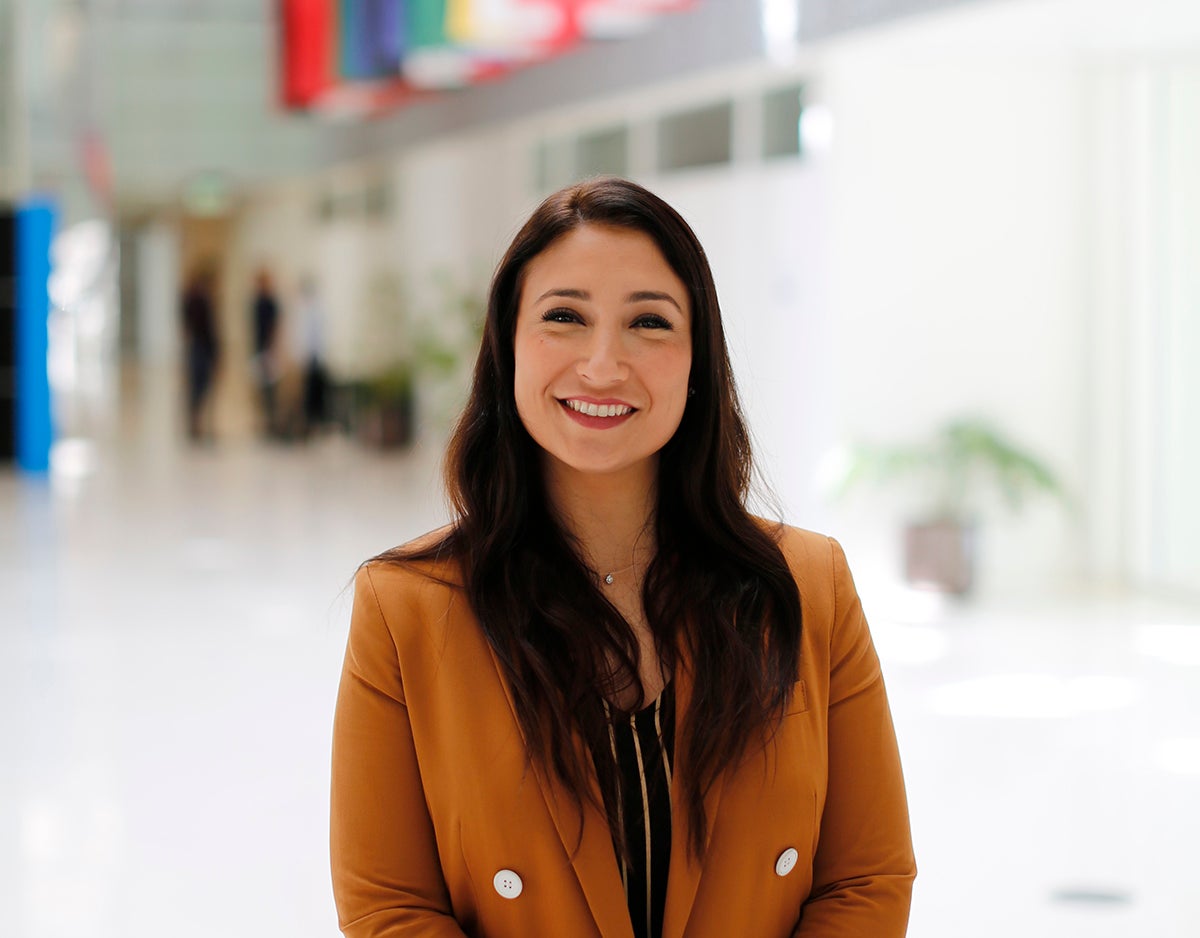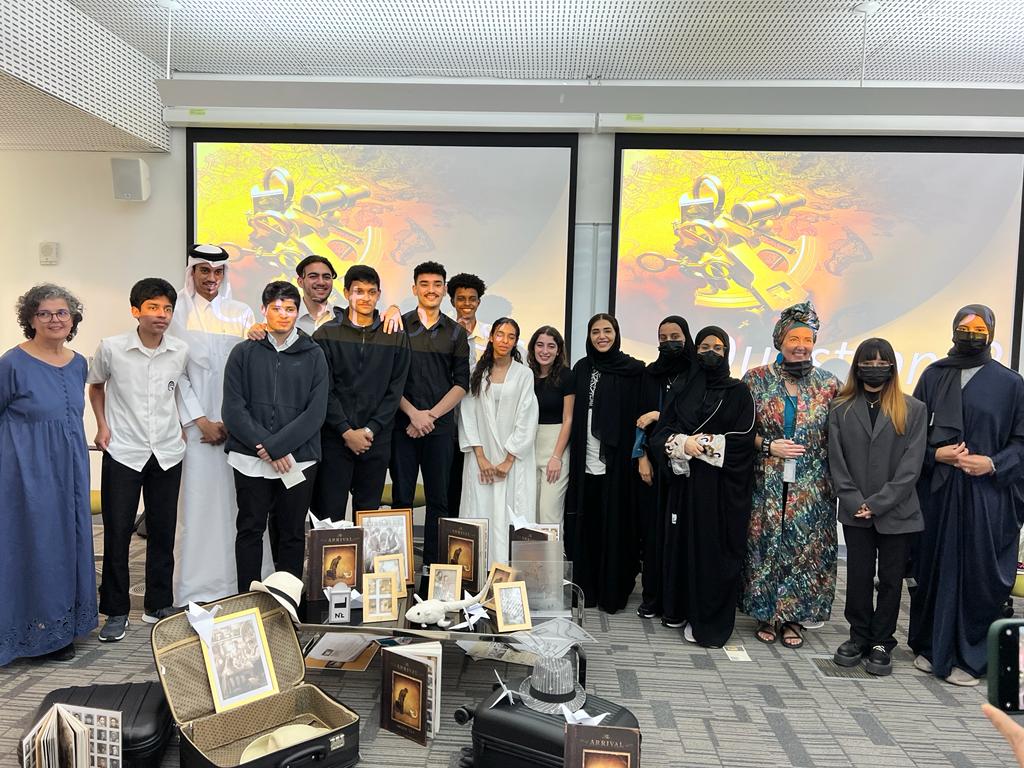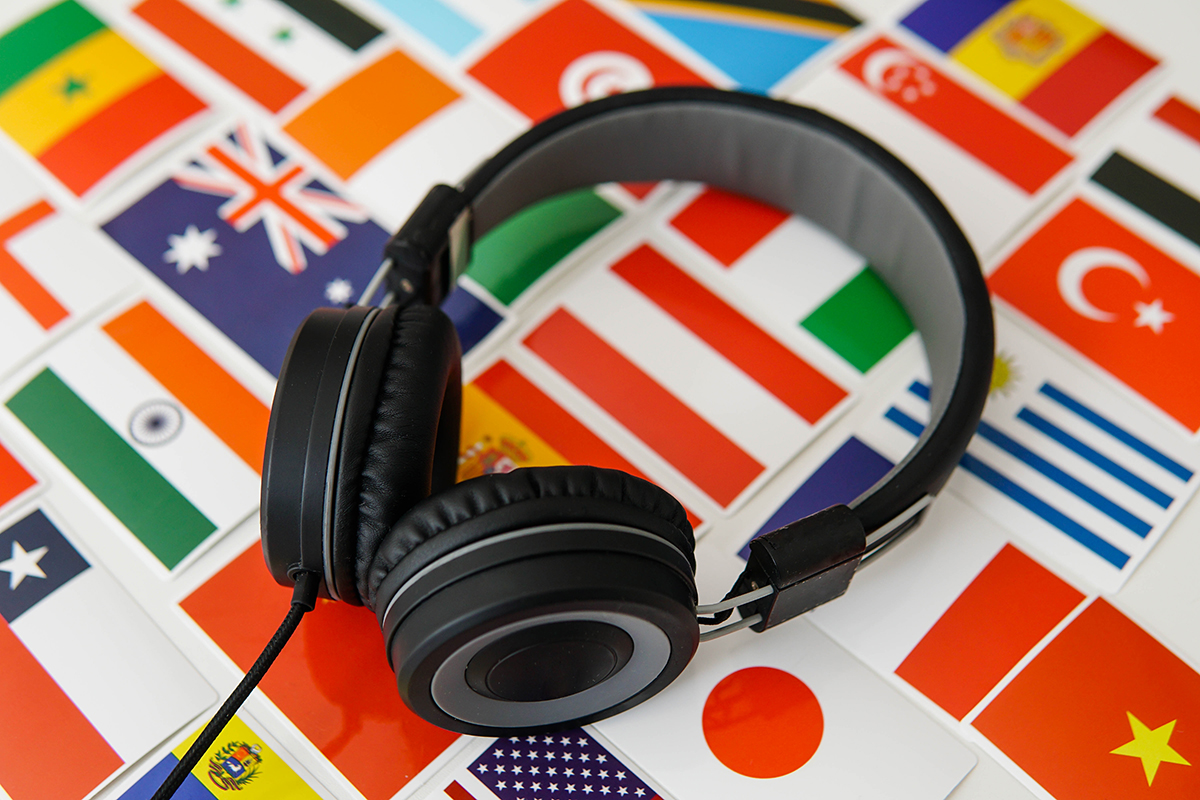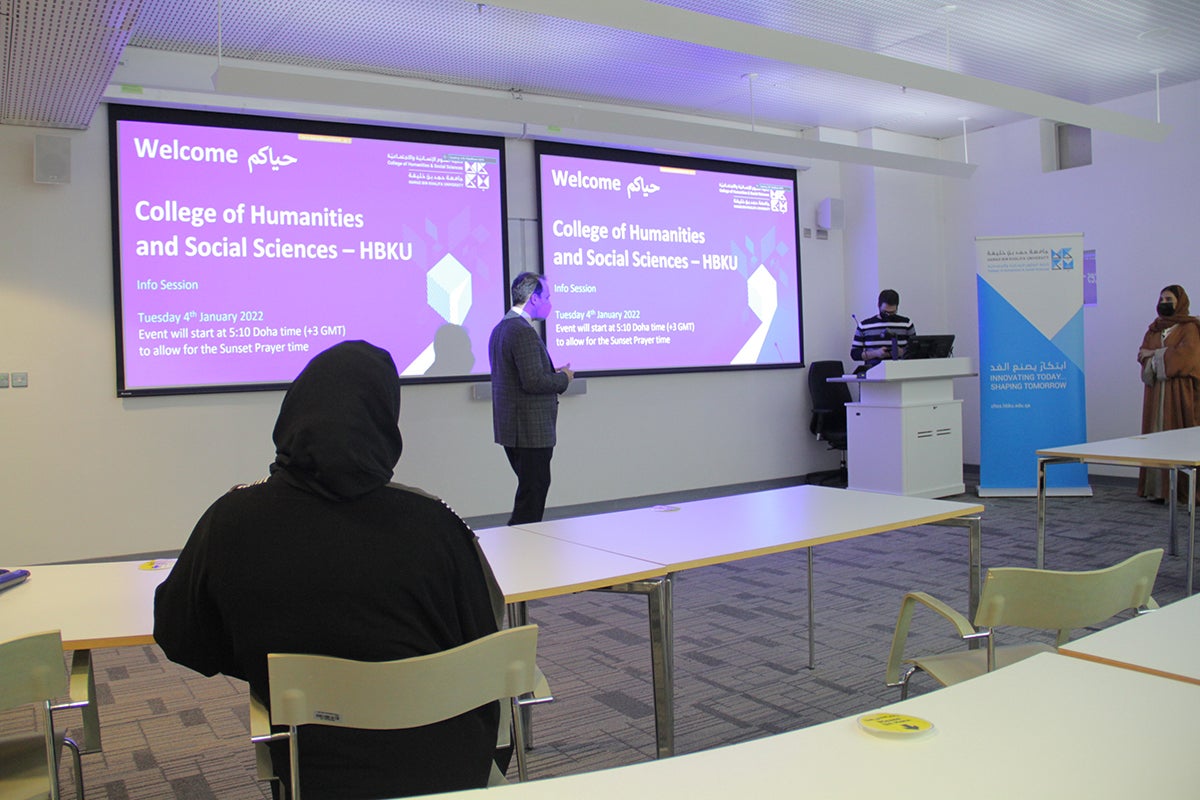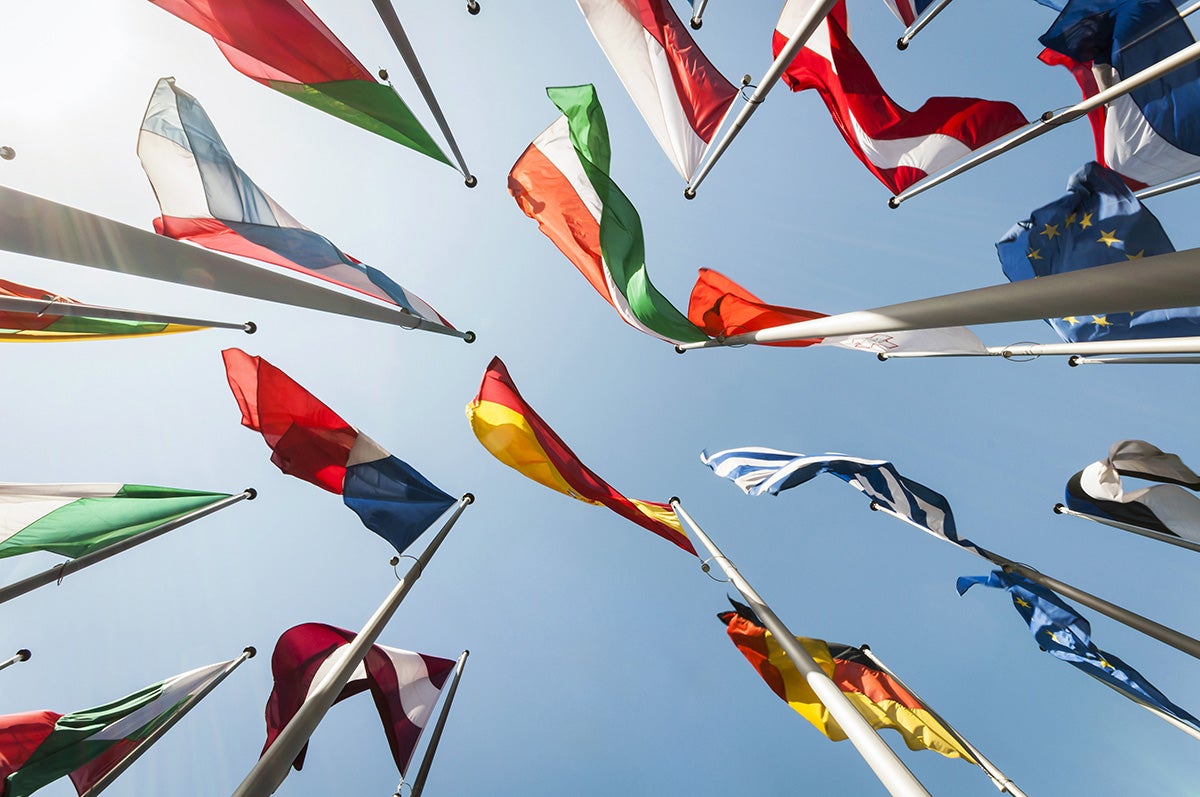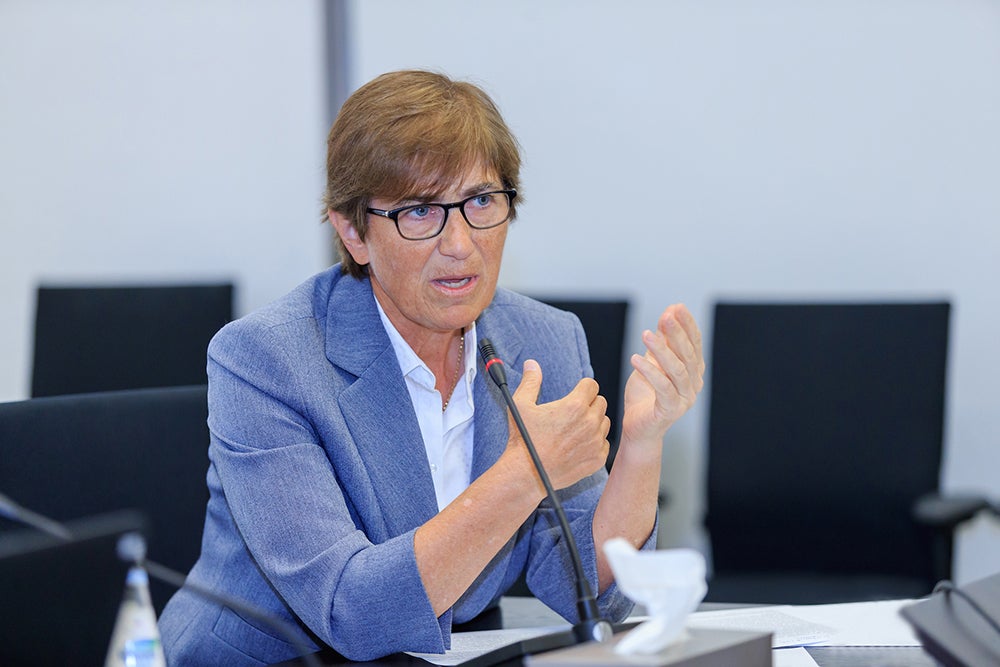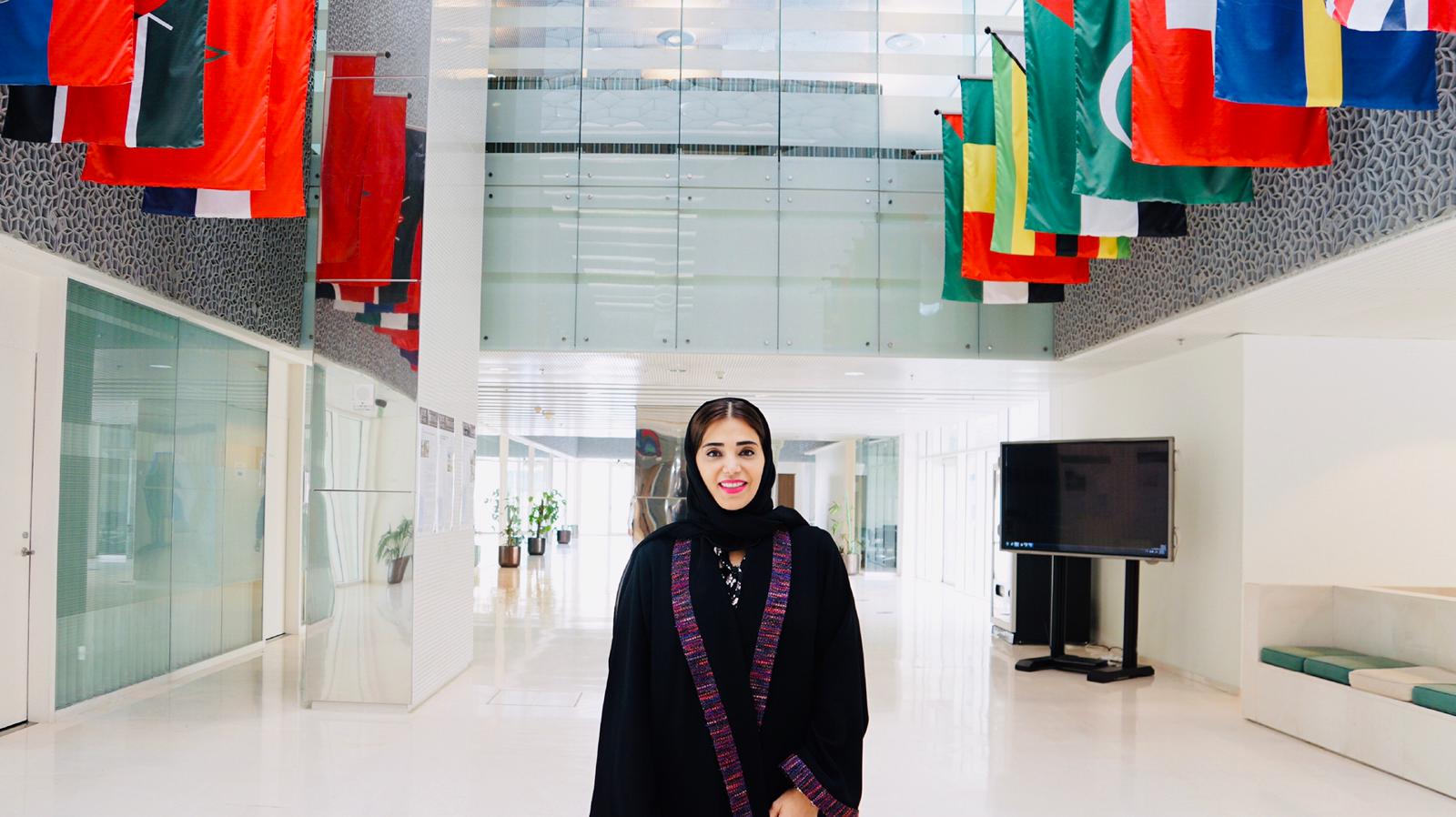
Interview with Dr. Amal Al-Malki
Founding Dean, College of Humanities and Social Sciences (CHSS), Hamad Bin Khalifa University
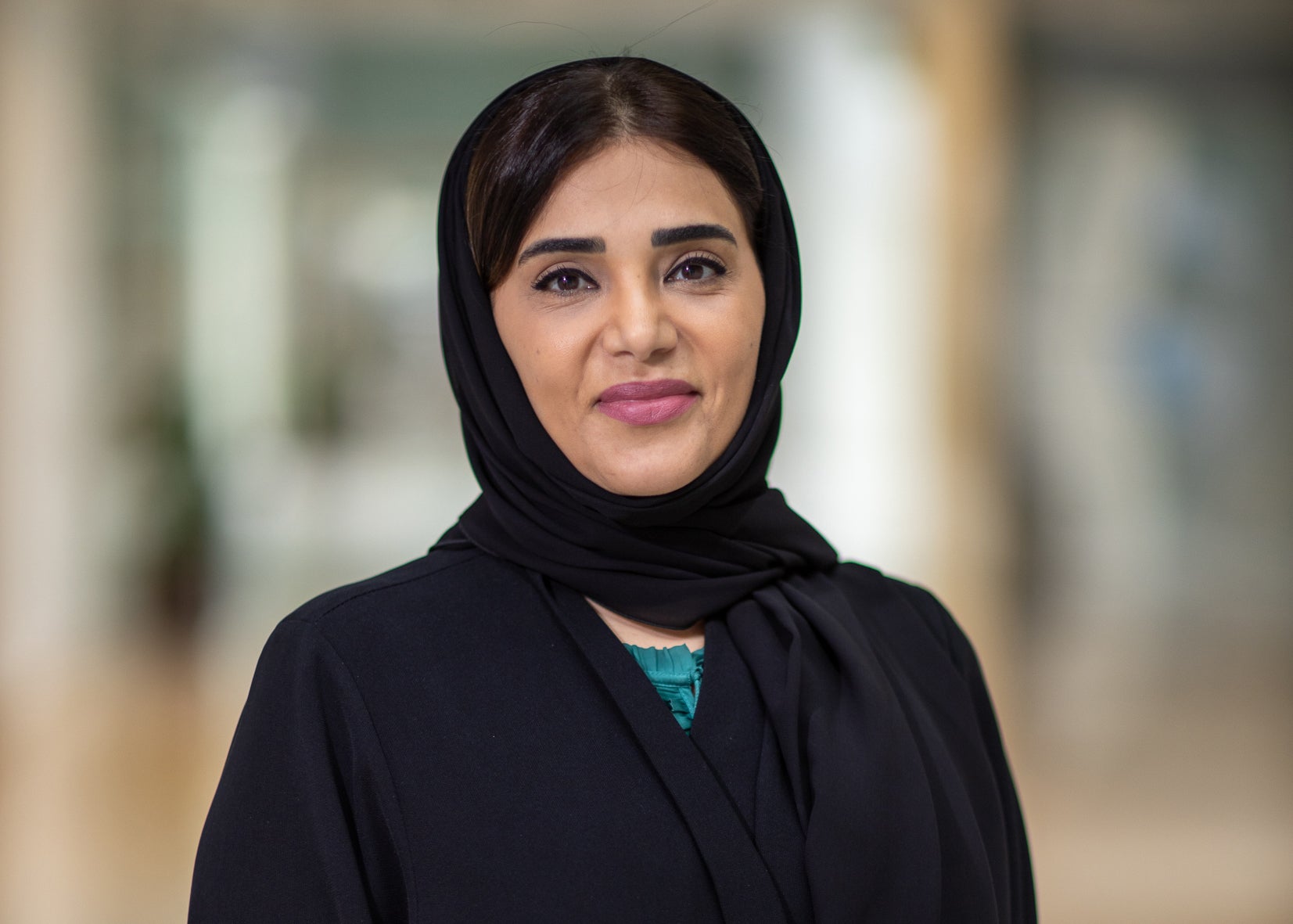
How did the college adapt during the pandemic last year and why is it important to return to the classroom
It is tremendously important and exciting to welcome students back to their lecture rooms after studying online the past academic year. Although online classes and teaching has its advantages, learning within a traditional classroom setting is essential. In-person interactions, and direct access to hi-tech resources, enrich the students’ journey within the college. There is nothing quite like being together physically in a classroom or lecture hall where ideas and conversations can flow far more naturally when discussing subjects or making arguments. When any of us look back at our academic and learning journey, many of memories we cherish most took place within the halls of the University and within classrooms.
When the pandemic broke out last year, everyone’s health and safety were naturally paramount to everything, and I would say that under all the trying circumstances, HBKU and the college did extraordinarily well to maintain the exceedingly high level of education for our students. There is no doubt that hi-technology came into its own like never before, and we all adapted to meetings and lectures via remote communication. I am particularly proud of our faculty for their dedicated work during this time, and, of course, our wonderfully talented students who all showed great diligence and enthusiasm for wanting to continue their academic studying via this method of teaching.
What are the main programs offered at your college, and are there any that are unique or exclusive to the region?
We offer a total of five programs at CHSS, all of which are unique in their own way to Qatar, and the wider MENA region. Our Doctor of Philosophy (PhD) in Humanities and Social Sciences, for example, is the first degree of its kind in Qatar – and one of the few in the world – to provide students with the philosophical and technical grounding to design and tailor their own interdisciplinary program while being able to specialize via a dissertation. We also offer two master’s degrees in the invaluable field of translation (MA in Translation studies, and MA in Audiovisual Translation), both delivered by the college’s Translation and Interpreting Institute, and are validated by the University of Genève’s Faculty of Translation and Interpreting (FTI). In addition, we have an MA in Women, Society and Development. This is a two-year interdisciplinary program focusing on issues related to women in the context of social and economic development in the Middle East, as well as women’s various roles in the advancement of their communities and societies in the region. The college also offers MA in Digital Humanities and Societies; a two-year program that allows participants to study the Middle East’s digital culture from a scholarly and applied perspective.
What role does your college play in addressing the country’s national challenges, and how do humanities and social sciences contribute to social progress in Qatar?
Ever since the College of Humanities and Social Sciences was established, it has had a fully focused vision of enriching society in Qatar and across the wider world with transformative educational experiences that bridge disciplinary boundaries and offer the academic community opportunities to engage in innovative research and collaboration.
Our vision, mission and activities are aligned to the social development and advancement pillar within the Qatar National Vision 2030. Socially driven causes such as providing equal educational, professional development, and career opportunities for all citizens, regardless of their background or gender is at the heart of everything that we do and stand for.
The college's strength and drive towards social justice today is attributed to the faculty, staff, students, supporters, stakeholders and partners for their substantial contributions to all our successes. Together, we are all committed to making a positive social impact locally and globally through unique and transformative interdisciplinary educational programs and research.
We are very proud to be helping to nurture a diverse body of academically grounded and socially responsible global citizens thanks to the incredibly special courses we offer. We honestly believe that the versatility of the graduates who leave CHSS will enable them to navigate the complexities and challenges of today’s world and become the leaders of tomorrow. That fills us all with tremendous hope for the future, both for Qatar and for countries further afield. The fact that so many of our alumni work in areas as diverse as education, tourism, foreign affairs, the media, telecommunications, the oil and gas industry, banking and healthcare underlines the importance and legacy of what we are honored to be delivering.
Related News
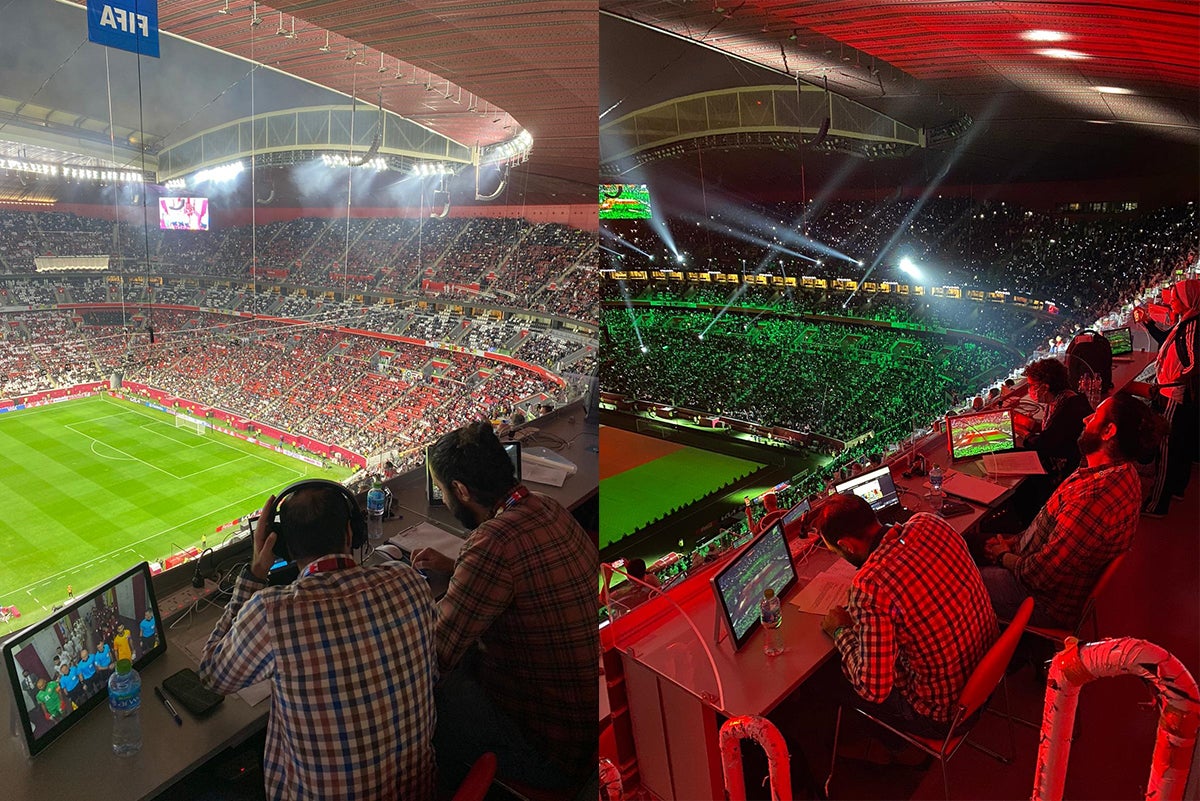
HBKU’s Translation and Interpreting Institute Acts as a Catalyst for Disability-Inclusive Change in Wider Society

College of Humanities and Social Sciences Holds Launch for 'The Routledge Handbook on the Middle East Economy'
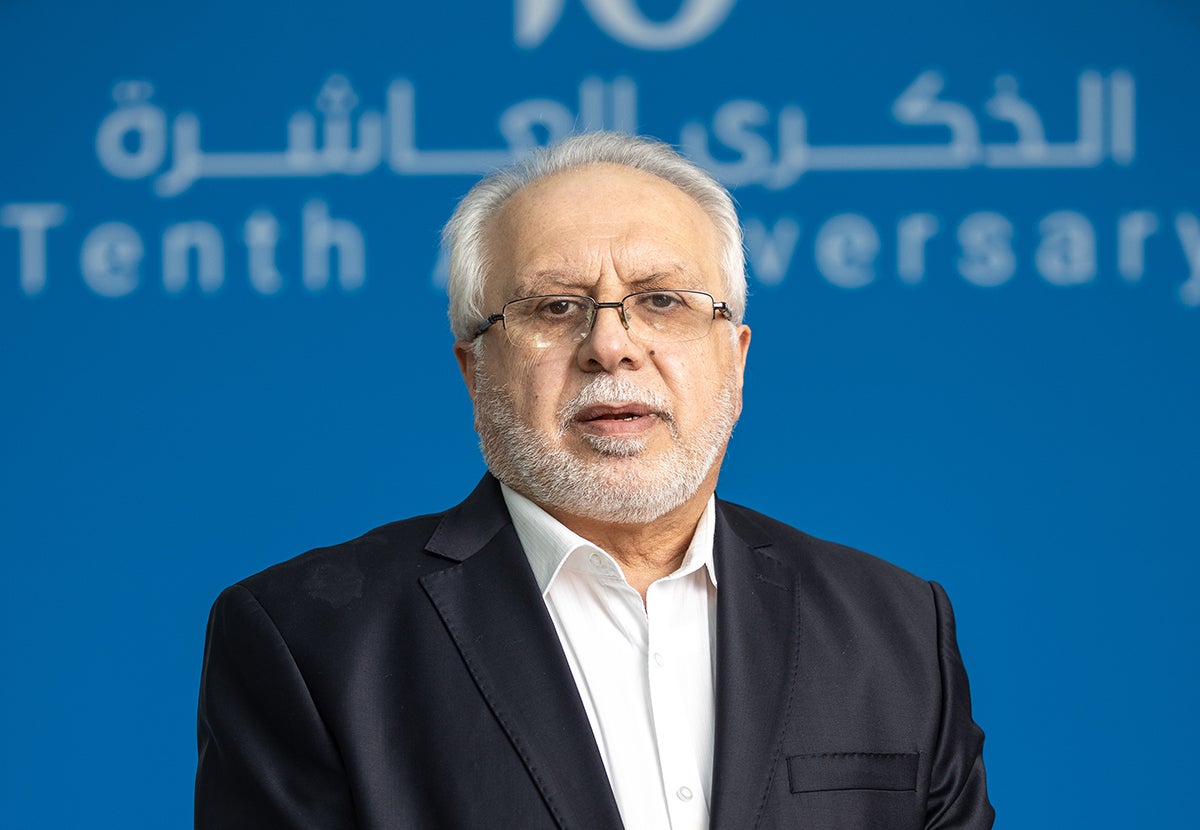
Interview with Mr. Mowafak Tawfeek, Graduate, College of Humanities and Social Sciences, First Batch of HBKU Graduates
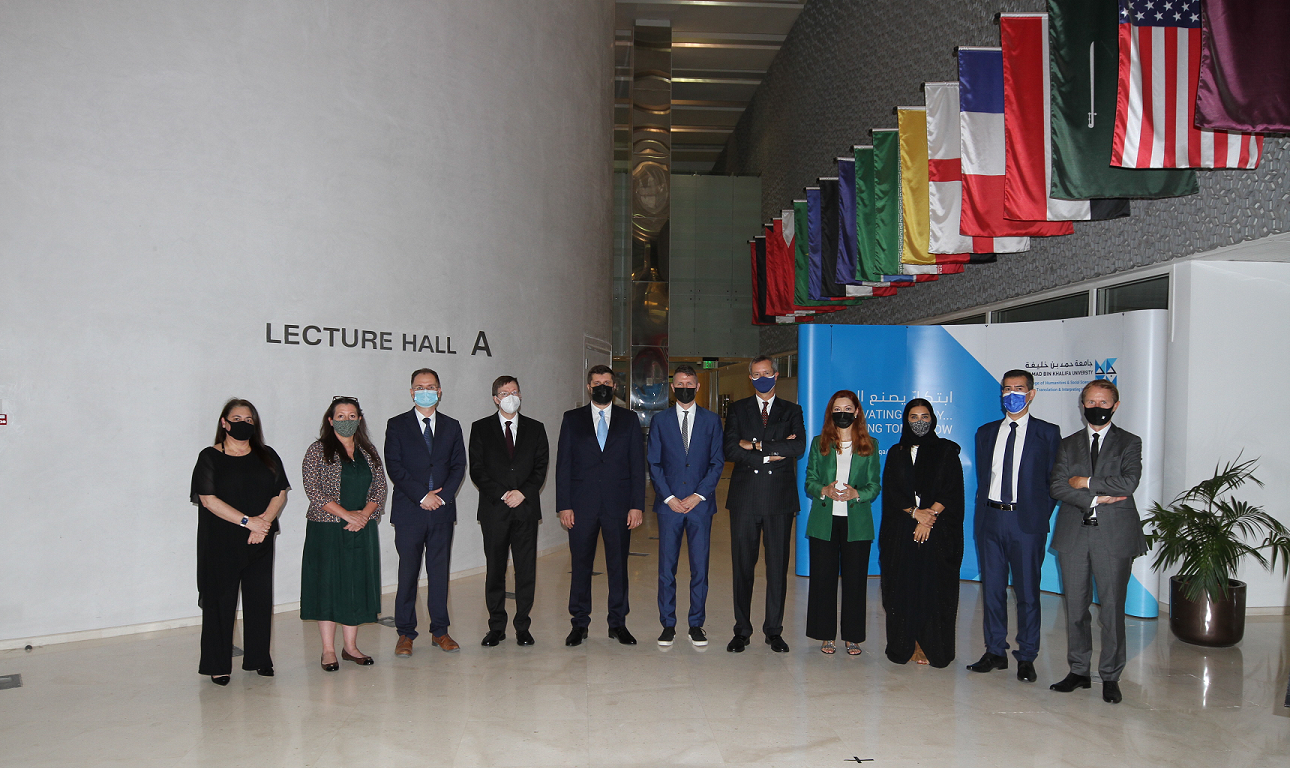
HBKU’s Translation and Interpreting Institute Celebrates Linguistic and Cultural Diversity on the European Day of Languages
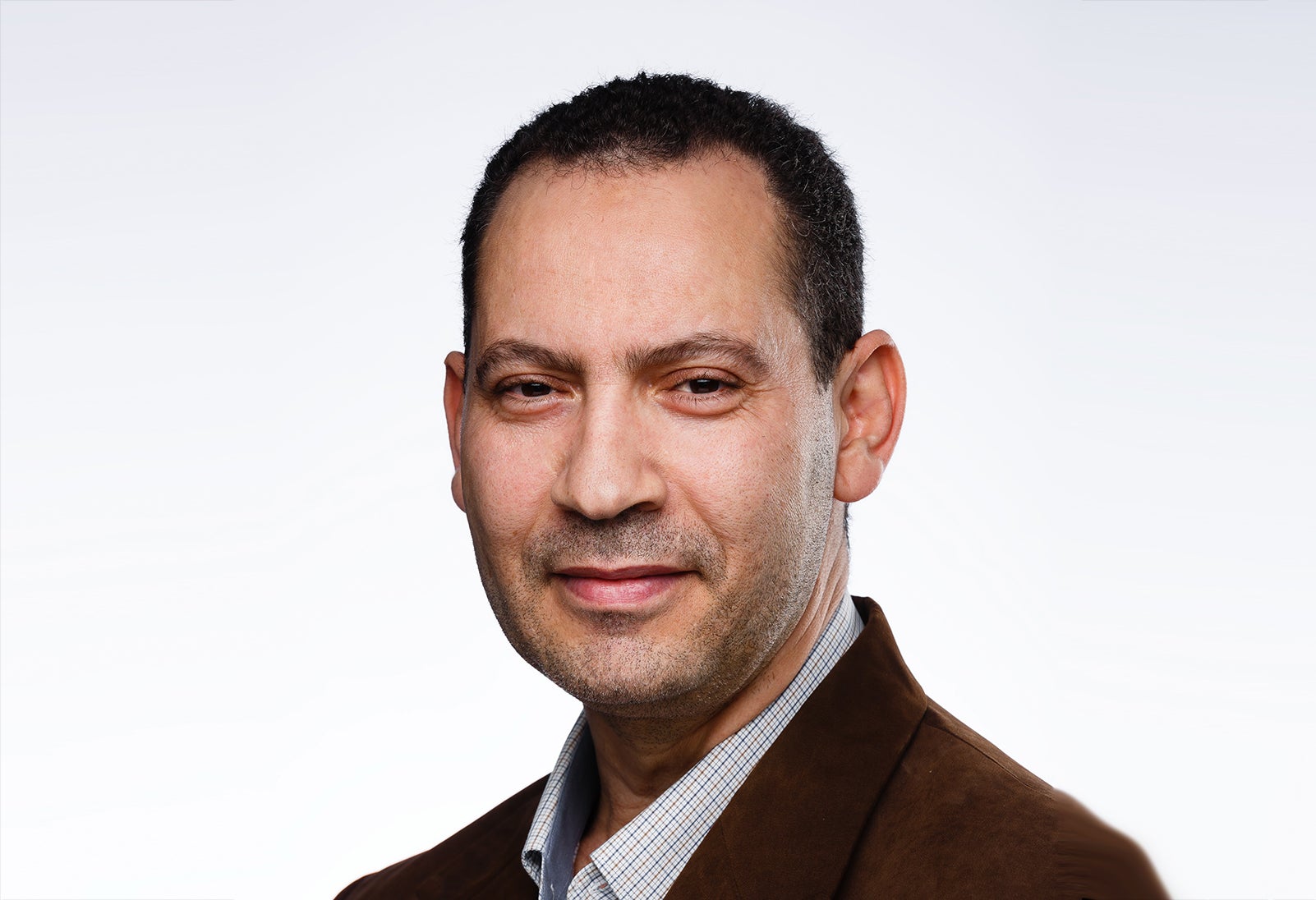
HBKU Audiovisual Translation Graduate Students Contribute to Autism Resources in the Arabic Language
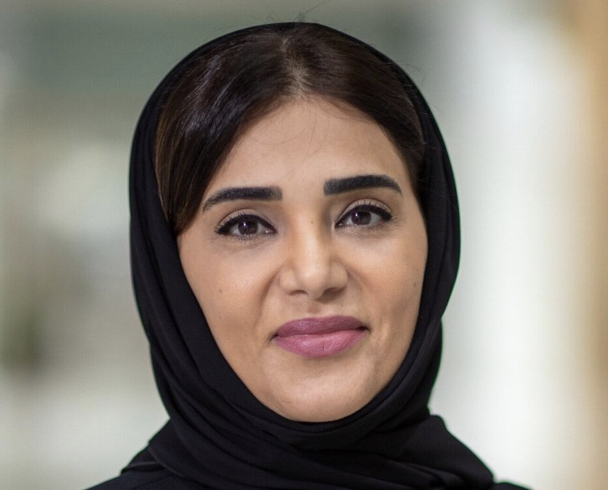
College of Humanities and Social Sciences Celebrates Role of Women Engineers During the Pandemic
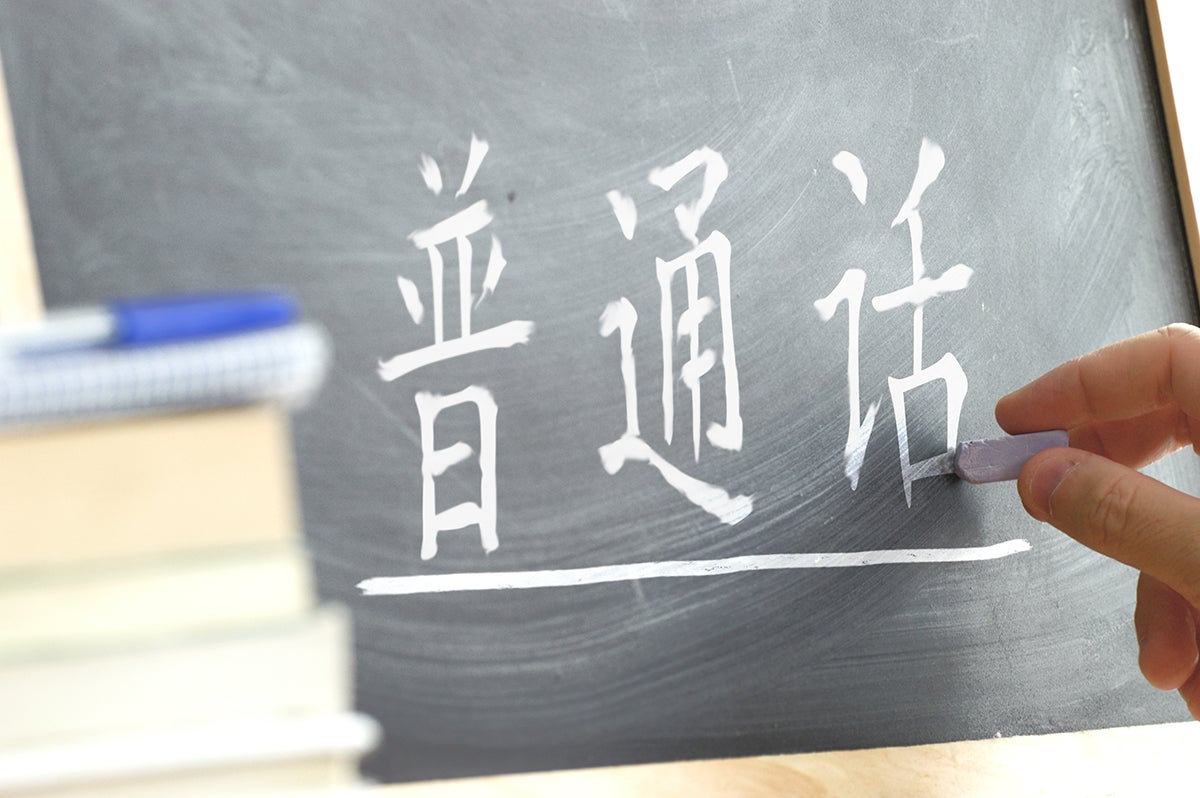
Why Language Matters: Encouraging Cultural Exchange Through TII’s Mandarin Chinese Program
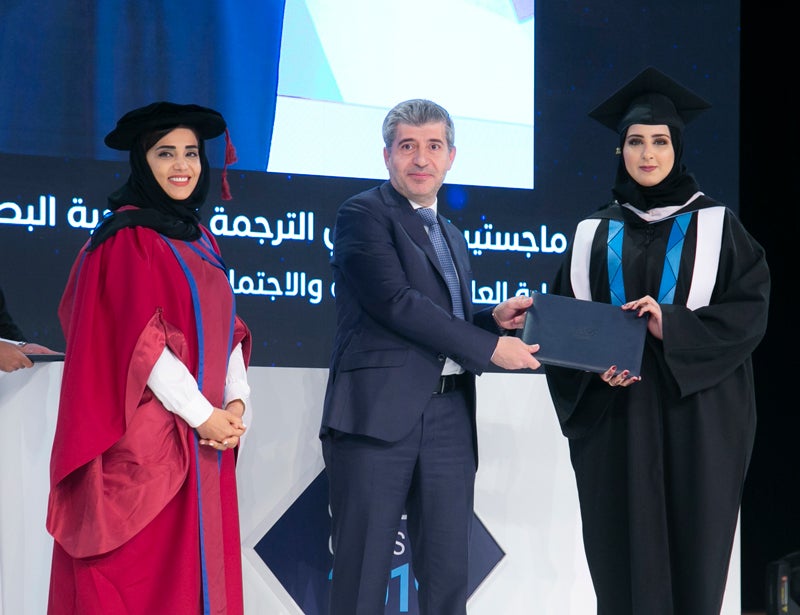
HBKU’s College of Humanities and Social Sciences Graduates Shaping Society and Advancing Knowledge
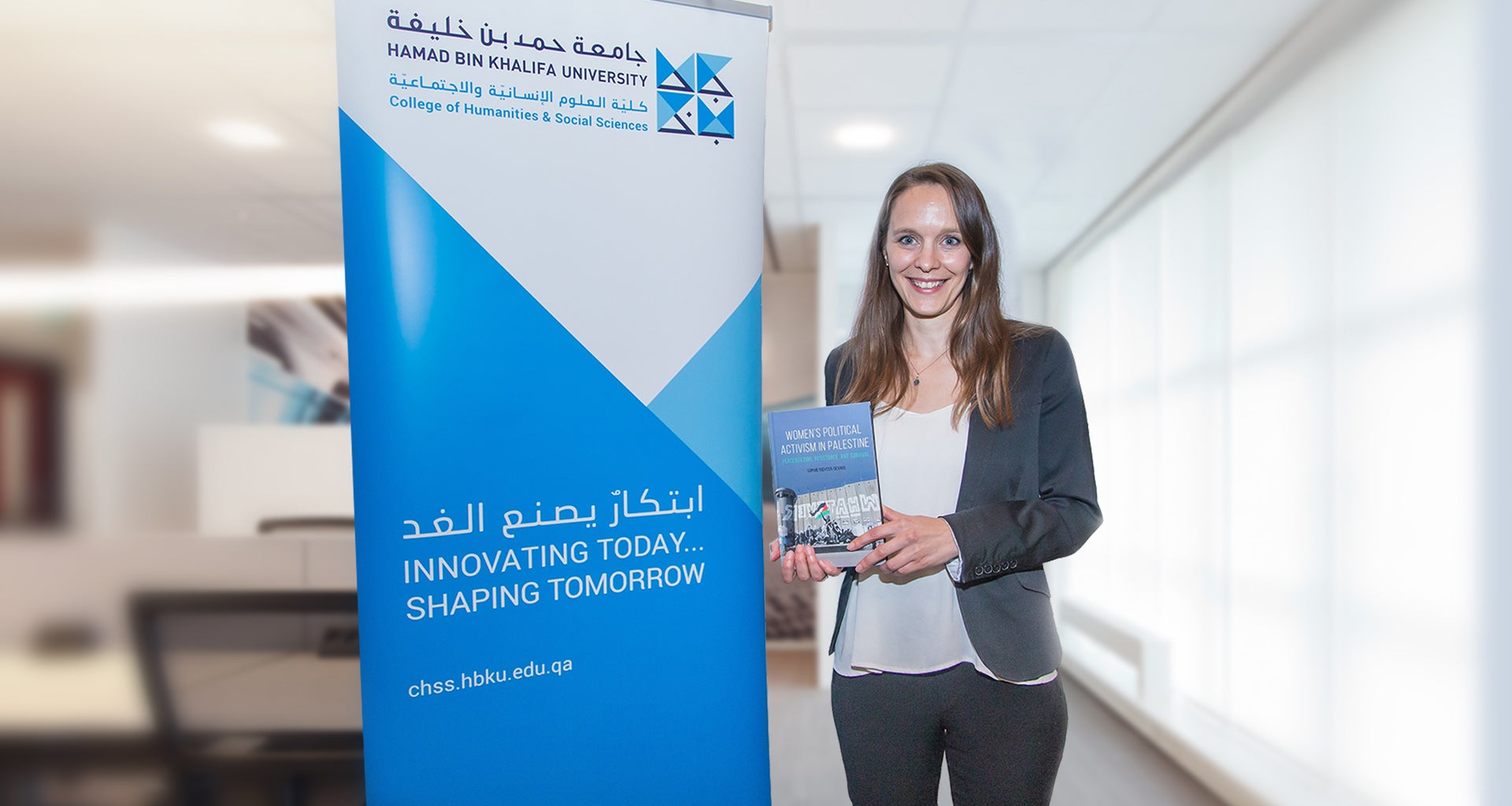
HBKU’s College of Humanities and Social Sciences Professor Discusses Topics on Women in Palestine

HBKU’s Translation and Interpreting Institute Acts as a Catalyst for Disability-Inclusive Change in Wider Society

College of Humanities and Social Sciences Holds Launch for 'The Routledge Handbook on the Middle East Economy'

Interview with Mr. Mowafak Tawfeek, Graduate, College of Humanities and Social Sciences, First Batch of HBKU Graduates

HBKU’s Translation and Interpreting Institute Celebrates Linguistic and Cultural Diversity on the European Day of Languages

HBKU Audiovisual Translation Graduate Students Contribute to Autism Resources in the Arabic Language

College of Humanities and Social Sciences Celebrates Role of Women Engineers During the Pandemic

Why Language Matters: Encouraging Cultural Exchange Through TII’s Mandarin Chinese Program

HBKU’s College of Humanities and Social Sciences Graduates Shaping Society and Advancing Knowledge

HBKU’s College of Humanities and Social Sciences Professor Discusses Topics on Women in Palestine

HBKU’s Translation and Interpreting Institute Acts as a Catalyst for Disability-Inclusive Change in Wider Society

College of Humanities and Social Sciences Holds Launch for 'The Routledge Handbook on the Middle East Economy'

Interview with Mr. Mowafak Tawfeek, Graduate, College of Humanities and Social Sciences, First Batch of HBKU Graduates

HBKU’s Translation and Interpreting Institute Celebrates Linguistic and Cultural Diversity on the European Day of Languages

HBKU Audiovisual Translation Graduate Students Contribute to Autism Resources in the Arabic Language

College of Humanities and Social Sciences Celebrates Role of Women Engineers During the Pandemic

Why Language Matters: Encouraging Cultural Exchange Through TII’s Mandarin Chinese Program

HBKU’s College of Humanities and Social Sciences Graduates Shaping Society and Advancing Knowledge

HBKU’s College of Humanities and Social Sciences Professor Discusses Topics on Women in Palestine

HBKU’s Translation and Interpreting Institute Acts as a Catalyst for Disability-Inclusive Change in Wider Society

College of Humanities and Social Sciences Holds Launch for 'The Routledge Handbook on the Middle East Economy'

Interview with Mr. Mowafak Tawfeek, Graduate, College of Humanities and Social Sciences, First Batch of HBKU Graduates

HBKU’s Translation and Interpreting Institute Celebrates Linguistic and Cultural Diversity on the European Day of Languages

HBKU Audiovisual Translation Graduate Students Contribute to Autism Resources in the Arabic Language

College of Humanities and Social Sciences Celebrates Role of Women Engineers During the Pandemic

Why Language Matters: Encouraging Cultural Exchange Through TII’s Mandarin Chinese Program

HBKU’s College of Humanities and Social Sciences Graduates Shaping Society and Advancing Knowledge

HBKU’s College of Humanities and Social Sciences Professor Discusses Topics on Women in Palestine

HBKU’s Translation and Interpreting Institute Acts as a Catalyst for Disability-Inclusive Change in Wider Society

College of Humanities and Social Sciences Holds Launch for 'The Routledge Handbook on the Middle East Economy'

Interview with Mr. Mowafak Tawfeek, Graduate, College of Humanities and Social Sciences, First Batch of HBKU Graduates

HBKU’s Translation and Interpreting Institute Celebrates Linguistic and Cultural Diversity on the European Day of Languages

HBKU Audiovisual Translation Graduate Students Contribute to Autism Resources in the Arabic Language

College of Humanities and Social Sciences Celebrates Role of Women Engineers During the Pandemic

Why Language Matters: Encouraging Cultural Exchange Through TII’s Mandarin Chinese Program

HBKU’s College of Humanities and Social Sciences Graduates Shaping Society and Advancing Knowledge

HBKU’s College of Humanities and Social Sciences Professor Discusses Topics on Women in Palestine

HBKU’s Translation and Interpreting Institute Acts as a Catalyst for Disability-Inclusive Change in Wider Society

College of Humanities and Social Sciences Holds Launch for 'The Routledge Handbook on the Middle East Economy'

Interview with Mr. Mowafak Tawfeek, Graduate, College of Humanities and Social Sciences, First Batch of HBKU Graduates

HBKU’s Translation and Interpreting Institute Celebrates Linguistic and Cultural Diversity on the European Day of Languages

HBKU Audiovisual Translation Graduate Students Contribute to Autism Resources in the Arabic Language

College of Humanities and Social Sciences Celebrates Role of Women Engineers During the Pandemic

Why Language Matters: Encouraging Cultural Exchange Through TII’s Mandarin Chinese Program

HBKU’s College of Humanities and Social Sciences Graduates Shaping Society and Advancing Knowledge

HBKU’s College of Humanities and Social Sciences Professor Discusses Topics on Women in Palestine

HBKU’s Translation and Interpreting Institute Acts as a Catalyst for Disability-Inclusive Change in Wider Society

College of Humanities and Social Sciences Holds Launch for 'The Routledge Handbook on the Middle East Economy'

Interview with Mr. Mowafak Tawfeek, Graduate, College of Humanities and Social Sciences, First Batch of HBKU Graduates

HBKU’s Translation and Interpreting Institute Celebrates Linguistic and Cultural Diversity on the European Day of Languages

HBKU Audiovisual Translation Graduate Students Contribute to Autism Resources in the Arabic Language

College of Humanities and Social Sciences Celebrates Role of Women Engineers During the Pandemic

Why Language Matters: Encouraging Cultural Exchange Through TII’s Mandarin Chinese Program

HBKU’s College of Humanities and Social Sciences Graduates Shaping Society and Advancing Knowledge

HBKU’s College of Humanities and Social Sciences Professor Discusses Topics on Women in Palestine

HBKU’s Translation and Interpreting Institute Acts as a Catalyst for Disability-Inclusive Change in Wider Society

College of Humanities and Social Sciences Holds Launch for 'The Routledge Handbook on the Middle East Economy'

Interview with Mr. Mowafak Tawfeek, Graduate, College of Humanities and Social Sciences, First Batch of HBKU Graduates

HBKU’s Translation and Interpreting Institute Celebrates Linguistic and Cultural Diversity on the European Day of Languages

HBKU Audiovisual Translation Graduate Students Contribute to Autism Resources in the Arabic Language

College of Humanities and Social Sciences Celebrates Role of Women Engineers During the Pandemic

Why Language Matters: Encouraging Cultural Exchange Through TII’s Mandarin Chinese Program

HBKU’s College of Humanities and Social Sciences Graduates Shaping Society and Advancing Knowledge

HBKU’s College of Humanities and Social Sciences Professor Discusses Topics on Women in Palestine

HBKU’s Translation and Interpreting Institute Acts as a Catalyst for Disability-Inclusive Change in Wider Society

College of Humanities and Social Sciences Holds Launch for 'The Routledge Handbook on the Middle East Economy'

Interview with Mr. Mowafak Tawfeek, Graduate, College of Humanities and Social Sciences, First Batch of HBKU Graduates

HBKU’s Translation and Interpreting Institute Celebrates Linguistic and Cultural Diversity on the European Day of Languages

HBKU Audiovisual Translation Graduate Students Contribute to Autism Resources in the Arabic Language

College of Humanities and Social Sciences Celebrates Role of Women Engineers During the Pandemic

Why Language Matters: Encouraging Cultural Exchange Through TII’s Mandarin Chinese Program

HBKU’s College of Humanities and Social Sciences Graduates Shaping Society and Advancing Knowledge

HBKU’s College of Humanities and Social Sciences Professor Discusses Topics on Women in Palestine

HBKU’s Translation and Interpreting Institute Acts as a Catalyst for Disability-Inclusive Change in Wider Society

College of Humanities and Social Sciences Holds Launch for 'The Routledge Handbook on the Middle East Economy'

Interview with Mr. Mowafak Tawfeek, Graduate, College of Humanities and Social Sciences, First Batch of HBKU Graduates

HBKU’s Translation and Interpreting Institute Celebrates Linguistic and Cultural Diversity on the European Day of Languages

HBKU Audiovisual Translation Graduate Students Contribute to Autism Resources in the Arabic Language

College of Humanities and Social Sciences Celebrates Role of Women Engineers During the Pandemic

Why Language Matters: Encouraging Cultural Exchange Through TII’s Mandarin Chinese Program

HBKU’s College of Humanities and Social Sciences Graduates Shaping Society and Advancing Knowledge

HBKU’s College of Humanities and Social Sciences Professor Discusses Topics on Women in Palestine

HBKU’s Translation and Interpreting Institute Acts as a Catalyst for Disability-Inclusive Change in Wider Society

College of Humanities and Social Sciences Holds Launch for 'The Routledge Handbook on the Middle East Economy'

Interview with Mr. Mowafak Tawfeek, Graduate, College of Humanities and Social Sciences, First Batch of HBKU Graduates

HBKU’s Translation and Interpreting Institute Celebrates Linguistic and Cultural Diversity on the European Day of Languages

HBKU Audiovisual Translation Graduate Students Contribute to Autism Resources in the Arabic Language

College of Humanities and Social Sciences Celebrates Role of Women Engineers During the Pandemic

Why Language Matters: Encouraging Cultural Exchange Through TII’s Mandarin Chinese Program

HBKU’s College of Humanities and Social Sciences Graduates Shaping Society and Advancing Knowledge

HBKU’s College of Humanities and Social Sciences Professor Discusses Topics on Women in Palestine

HBKU’s Translation and Interpreting Institute Acts as a Catalyst for Disability-Inclusive Change in Wider Society

College of Humanities and Social Sciences Holds Launch for 'The Routledge Handbook on the Middle East Economy'

Interview with Mr. Mowafak Tawfeek, Graduate, College of Humanities and Social Sciences, First Batch of HBKU Graduates

HBKU’s Translation and Interpreting Institute Celebrates Linguistic and Cultural Diversity on the European Day of Languages

HBKU Audiovisual Translation Graduate Students Contribute to Autism Resources in the Arabic Language

College of Humanities and Social Sciences Celebrates Role of Women Engineers During the Pandemic

Why Language Matters: Encouraging Cultural Exchange Through TII’s Mandarin Chinese Program

HBKU’s College of Humanities and Social Sciences Graduates Shaping Society and Advancing Knowledge

HBKU’s College of Humanities and Social Sciences Professor Discusses Topics on Women in Palestine

HBKU’s Translation and Interpreting Institute Acts as a Catalyst for Disability-Inclusive Change in Wider Society

College of Humanities and Social Sciences Holds Launch for 'The Routledge Handbook on the Middle East Economy'

Interview with Mr. Mowafak Tawfeek, Graduate, College of Humanities and Social Sciences, First Batch of HBKU Graduates

HBKU’s Translation and Interpreting Institute Celebrates Linguistic and Cultural Diversity on the European Day of Languages

HBKU Audiovisual Translation Graduate Students Contribute to Autism Resources in the Arabic Language

College of Humanities and Social Sciences Celebrates Role of Women Engineers During the Pandemic

Why Language Matters: Encouraging Cultural Exchange Through TII’s Mandarin Chinese Program

HBKU’s College of Humanities and Social Sciences Graduates Shaping Society and Advancing Knowledge

HBKU’s College of Humanities and Social Sciences Professor Discusses Topics on Women in Palestine

HBKU’s Translation and Interpreting Institute Acts as a Catalyst for Disability-Inclusive Change in Wider Society

College of Humanities and Social Sciences Holds Launch for 'The Routledge Handbook on the Middle East Economy'

Interview with Mr. Mowafak Tawfeek, Graduate, College of Humanities and Social Sciences, First Batch of HBKU Graduates

HBKU’s Translation and Interpreting Institute Celebrates Linguistic and Cultural Diversity on the European Day of Languages

HBKU Audiovisual Translation Graduate Students Contribute to Autism Resources in the Arabic Language

College of Humanities and Social Sciences Celebrates Role of Women Engineers During the Pandemic

Why Language Matters: Encouraging Cultural Exchange Through TII’s Mandarin Chinese Program

HBKU’s College of Humanities and Social Sciences Graduates Shaping Society and Advancing Knowledge

HBKU’s College of Humanities and Social Sciences Professor Discusses Topics on Women in Palestine

HBKU’s Translation and Interpreting Institute Acts as a Catalyst for Disability-Inclusive Change in Wider Society

College of Humanities and Social Sciences Holds Launch for 'The Routledge Handbook on the Middle East Economy'

Interview with Mr. Mowafak Tawfeek, Graduate, College of Humanities and Social Sciences, First Batch of HBKU Graduates

HBKU’s Translation and Interpreting Institute Celebrates Linguistic and Cultural Diversity on the European Day of Languages

HBKU Audiovisual Translation Graduate Students Contribute to Autism Resources in the Arabic Language

College of Humanities and Social Sciences Celebrates Role of Women Engineers During the Pandemic

Why Language Matters: Encouraging Cultural Exchange Through TII’s Mandarin Chinese Program

HBKU’s College of Humanities and Social Sciences Graduates Shaping Society and Advancing Knowledge

HBKU’s College of Humanities and Social Sciences Professor Discusses Topics on Women in Palestine

HBKU’s Translation and Interpreting Institute Acts as a Catalyst for Disability-Inclusive Change in Wider Society

College of Humanities and Social Sciences Holds Launch for 'The Routledge Handbook on the Middle East Economy'

Interview with Mr. Mowafak Tawfeek, Graduate, College of Humanities and Social Sciences, First Batch of HBKU Graduates

HBKU’s Translation and Interpreting Institute Celebrates Linguistic and Cultural Diversity on the European Day of Languages

HBKU Audiovisual Translation Graduate Students Contribute to Autism Resources in the Arabic Language

College of Humanities and Social Sciences Celebrates Role of Women Engineers During the Pandemic

Why Language Matters: Encouraging Cultural Exchange Through TII’s Mandarin Chinese Program

HBKU’s College of Humanities and Social Sciences Graduates Shaping Society and Advancing Knowledge

HBKU’s College of Humanities and Social Sciences Professor Discusses Topics on Women in Palestine

HBKU’s Translation and Interpreting Institute Acts as a Catalyst for Disability-Inclusive Change in Wider Society

College of Humanities and Social Sciences Holds Launch for 'The Routledge Handbook on the Middle East Economy'

Interview with Mr. Mowafak Tawfeek, Graduate, College of Humanities and Social Sciences, First Batch of HBKU Graduates

HBKU’s Translation and Interpreting Institute Celebrates Linguistic and Cultural Diversity on the European Day of Languages

HBKU Audiovisual Translation Graduate Students Contribute to Autism Resources in the Arabic Language

College of Humanities and Social Sciences Celebrates Role of Women Engineers During the Pandemic

Why Language Matters: Encouraging Cultural Exchange Through TII’s Mandarin Chinese Program

HBKU’s College of Humanities and Social Sciences Graduates Shaping Society and Advancing Knowledge

HBKU’s College of Humanities and Social Sciences Professor Discusses Topics on Women in Palestine

HBKU’s Translation and Interpreting Institute Acts as a Catalyst for Disability-Inclusive Change in Wider Society

College of Humanities and Social Sciences Holds Launch for 'The Routledge Handbook on the Middle East Economy'

Interview with Mr. Mowafak Tawfeek, Graduate, College of Humanities and Social Sciences, First Batch of HBKU Graduates

HBKU’s Translation and Interpreting Institute Celebrates Linguistic and Cultural Diversity on the European Day of Languages

HBKU Audiovisual Translation Graduate Students Contribute to Autism Resources in the Arabic Language

College of Humanities and Social Sciences Celebrates Role of Women Engineers During the Pandemic

Why Language Matters: Encouraging Cultural Exchange Through TII’s Mandarin Chinese Program

HBKU’s College of Humanities and Social Sciences Graduates Shaping Society and Advancing Knowledge

HBKU’s College of Humanities and Social Sciences Professor Discusses Topics on Women in Palestine

HBKU’s Translation and Interpreting Institute Acts as a Catalyst for Disability-Inclusive Change in Wider Society

College of Humanities and Social Sciences Holds Launch for 'The Routledge Handbook on the Middle East Economy'

Interview with Mr. Mowafak Tawfeek, Graduate, College of Humanities and Social Sciences, First Batch of HBKU Graduates

HBKU’s Translation and Interpreting Institute Celebrates Linguistic and Cultural Diversity on the European Day of Languages

HBKU Audiovisual Translation Graduate Students Contribute to Autism Resources in the Arabic Language

College of Humanities and Social Sciences Celebrates Role of Women Engineers During the Pandemic

Why Language Matters: Encouraging Cultural Exchange Through TII’s Mandarin Chinese Program

HBKU’s College of Humanities and Social Sciences Graduates Shaping Society and Advancing Knowledge

HBKU’s College of Humanities and Social Sciences Professor Discusses Topics on Women in Palestine

HBKU’s Translation and Interpreting Institute Acts as a Catalyst for Disability-Inclusive Change in Wider Society

College of Humanities and Social Sciences Holds Launch for 'The Routledge Handbook on the Middle East Economy'

Interview with Mr. Mowafak Tawfeek, Graduate, College of Humanities and Social Sciences, First Batch of HBKU Graduates

HBKU’s Translation and Interpreting Institute Celebrates Linguistic and Cultural Diversity on the European Day of Languages

HBKU Audiovisual Translation Graduate Students Contribute to Autism Resources in the Arabic Language

College of Humanities and Social Sciences Celebrates Role of Women Engineers During the Pandemic

Why Language Matters: Encouraging Cultural Exchange Through TII’s Mandarin Chinese Program

HBKU’s College of Humanities and Social Sciences Graduates Shaping Society and Advancing Knowledge






